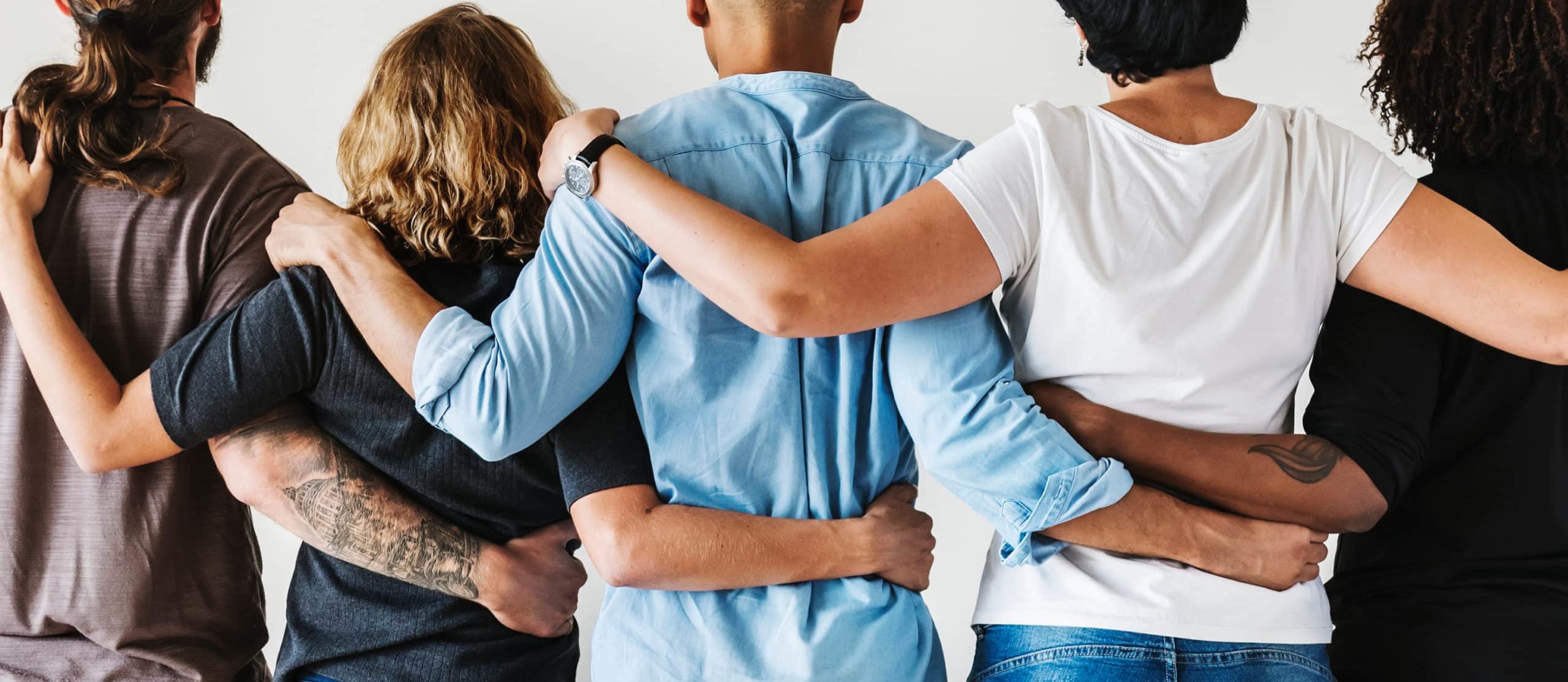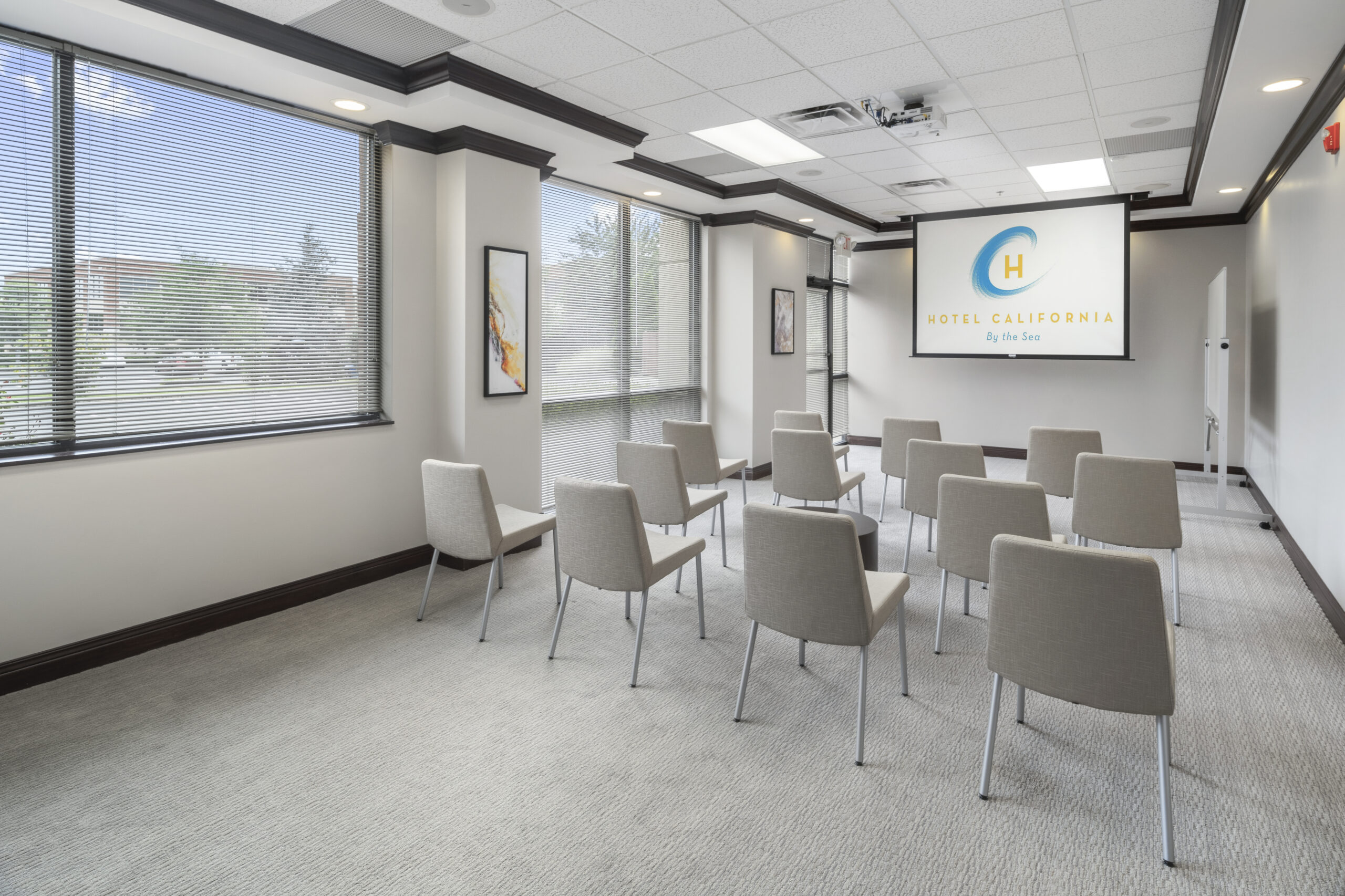
Group Therapy for Substance Abuse Treatment
- What Is Group Therapy for Substance Abuse and Addiction?
- How is Group Therapy a Beneficial Treatment Method for Substance Use Disorder?
- The Most Popular types of Group Therapy utilized for Substance Abuse Treatment
- Group Therapy VS. Support Groups. What is the Difference and How do I know Which one is Best for Me?
- Our Unique Approach on Group Therapy at Hotel California by the Sea
- Get Help
- Request a Call
Group therapy for substance abuse is an effective treatment for patients suffering from alcohol addiction and substance use disorders. It is often used to help patients develop and practice coping skills, improve on treatment engagement and build support for long-term recovery. Group therapy for addicts also helps cultivate a social support system from like-minded peers by reducing the feelings of isolation and stigma, increasing effective communication skills and practicing their newly learned coping strategies with other group members who have had similar experiences.
OR:
Request a Call

Group therapy for alcohol can help patients who suffer from co-occurring mental health disorders related to substance addiction. In a safe and understanding environment, group therapy reminds anyone suffering from a substance abuse disorder, they are not alone in recovery. Trying to recover alone is challenging. By having a supportive system of like-minded peers, professional rehab clinicians and family, the benefits of group therapy have been proven
to be an effective method to help individuals stay in long-term sobriety.
What Is Group Therapy for Substance Abuse and Addiction?
Group therapy is a form of psychotherapy designed for a community of peer individuals who, under the guidance of a licensed psychologist or therapists, get together to listen, support and provide encouragement to each other as they navigate their journey through addiction recovery. Individuals suffering from a substance addiction often feel alone in their struggles. Group therapy for addicts helps create a support system of peers who might be experiencing the same
emotional and physical struggles and brings them together to heal together. Research shows there is a higher chance of long term recovery from drug and alcohol addiction if a patient has some sort of peer, family or group support system on their side.
When it comes to treating substance use disorders, there are various targeted group therapy programs that individuals suffering from addiction should consider as an effective rehab treatment method. Specialized group therapy treatments fall under four main categories: relapse prevention group therapy, communal and culturally specific group therapy, expressive group therapy and group therapy focused on specific problems.
In group therapy, patients are able to work through their struggles by interacting with other individuals facing similar battles under the supervision of a certified psychologist. Members of the group session share their feelings, their obstacles and their goals for addiction recovery. By opening up to a group, members are able to receive constructive feedback, support and offer insight and encouragement to their fellow peers. All group sessions at Hotel California by the Sea are conducted in a safe, secure and confidential setting to ensure our patients are as comfortable as possible.
How is Group Therapy a Beneficial Treatment Method for Substance Use Disorder?
According to the National Institute on Drug Abuse (NIDA), when group therapy is incorporated into substance abuse treatment programs, individuals suffering from addiction are more likely to achieve positive outcomes and maintain long-term sobriety.
Group therapy for substance abuse allows the supervising therapist to observe how each group’s individuals interact with each other and how they behave in social situations. With this information, therapists are able to better understand each patient and make appropriate adjustments to their treatment care plan. Group sessions serve as a platform for men, women and young adults who may feel isolated in their addiction, to receive support and encouragement to help them recover. By listening to others with similar or the same experiences, group members do not feel so alone and help hold each other accountable during their addiction recovery journey. Clients are also exposed to new thoughts, behaviors and perspectives from others that they can incorporate into their own personal journey to recovery.
At Hotel California by the Sea, our rehab center offers various group therapy sessions for all of our clients in our inpatient and outpatient programs. Group therapy for alcoholics is considered a “safe haven” where individuals can freely speak, feel, practice skills and relay experiences within the sanctuary of the group. Many of our clients have been able to experience group therapy’s positive outcome. It is especially encouraging and rewarding to our clients when they are able to observe the success of others who have achieved long-term recovery.

The Most Popular types of Group Therapy utilized for Substance Abuse Treatment
Group therapy for alcoholics and addicts has been a proven treatment method in helping patients with substance use disorder. Group sessions help patients identify, understand and build a strategic set of coping skills to achieve long-term sobriety in a group setting. By allowing treatment with other like-minded peers, therapists are able to observe social interactions between individuals and make assessments and appropriate changes in treatment plans. It also allows patients to build a supportive community in which members are able to hold each other accountable on their journey in recovery. There are many types of group therapies that include: psychoeducational group therapy, skill development group therapy, cognitive behavioral group therapy, support groups and interpersonal process group therapy.
Psychoeducational Group Therapy
With psychoeducational group therapy, the main goal is to engage clients in group discussions about what they have learned about their own emotions, thoughts, and behaviors related to substance addiction. Therapists often also provide family members with an educational understanding on what their loved ones struggling with addiction may be experiencing as well as helping patients locate resources and services to help in their recovery. Some effective techniques used in psychoeducational group therapy include fostering an environment that encourages and supports participation from all group members, encouraging patients to take responsibility for their own learning, using sensory experiences as a learning tool and being mindful of various cognitive impairments that may be present in patients due to excessive substance use.
Skills Development Group Therapy
Participants in skills development group therapy learn and build new skills needed to cope with co-occurring mental health illnesses and to achieve and maintain abstinence. These skills include basic life skills such as problem-solving skills, time management skills and emotional management skills. Therapists are able to help patients cultivate and practice their learned strategies with other members of the group in a real-life social setting. The overall intention of skills development group therapy is to strengthen each patient’s cognitive and behavioral strategies to help him or her make healthier choices when it comes to their mental and physical health.
Cognitive Behavioral Group Therapy
In cognitive behavioral group therapy, patients learn to restructure their negative thoughts and behaviors related to their substance and drug addiction. They begin by identifying situations and settings that trigger negative substance-related behaviors. Patients then learn effective strategies to cope with and manage triggered emotions through the support of their social networks of group members. Cognitive behavior group therapy generally focuses on the immediate issues that stem from substance use disorder and how to change the mindset and behavioral patterns that come along with it.
Support Groups
Support groups are beneficial for those looking for a group of peers who are willing to listen and encourage positive behaviors to those in substance abuse recovery. Contrary to a traditional group therapy process, support groups are not facilitated by a licensed or professional therapist. These types of groups are peer-guided support systems for those struggling with co-occurring mental health disorders and substance addiction.
Support groups are not just for newly recovered clients and can be found in all stages of recovery, in different settings, whether it be inpatient or outpatient environments. Support groups allow members to develop and practice their emotional management and interpersonal skills as a coping mechanism for recovery from substance addiction. Support groups are also great for open discussions among like-minded peers who can provide feedback, advice and encouragement to one another.
Interpersonal Process Group Therapy
With interpersonal process group therapy, group members address any developmental influences such as early childhood experiences, and environmental influences that can impact their relationship with addiction. Patients will search for patterns and behaviors that contribute to their addiction as well as understand current relationships with others that can trigger negative addiction traits. Interpersonal process group therapy focuses on how different group dynamics and social group environments have had an impact on the individual and their substance abuse addiction.
Group Therapy VS. Support Groups. What is the Difference and How do I know Which one is Best for Me?
Contrary to what people may think, group therapy and support groups are two very different types of substance abuse and alcohol use disorder treatment methods. Group therapy is led by a licensed therapist meant to observe and facilitate each patient, their behaviors and their emotions. With the assistance of certified therapists, patients in group therapy for substance abuse are able to unpack and understand the struggles with addiction through the perspectives of their peers as well as their own. The goal of group therapy is ultimately to provide professional insight on how each patient can make personal changes in their lives to assist on their journey to recover from substance and alcohol addiction. Group therapy for substance abuse may be the right path for newly recovered addicts in an inpatient rehab environment looking for extra support from a clinical professional.
With substance addiction recovery support groups, all members of the group are peers and have come to offer support, understanding and empathy for others. It is a group environment where members can share insights about similar struggles and experiences. This can be beneficial for patients in the later stages of recovery looking to connect with other sober peers to keep each other accountable for long term support. Support groups are essentially a social event where members can utilize as a community of friends to help collectively problem solve, offer resources and connect with each other. The sense of a peer community is especially beneficial for those who may feel isolated, or feel alone in their recovery from a substance use disorder.
For individuals in our inpatient and outpatient programs at Hotel California by the Sea, access to various support groups for men, women and young adults with alcohol addiction, drug addiction, or other substance use disorders are available and encouraged as part of their treatment plan.
Our Unique Approach on Group Therapy at Hotel California by the Sea
Group therapy for substance abuse at Hotel California by the Sea consists of both newly recovered and seasoned members from inpatient and outpatient rehab programs. All of our “interpersonal process groups” are overseen by certified therapists and consist of men, women and young adult members in all stages of recovery. Depending on each individual treatment plan, groups can meet as often as once a day or as little as once a week. We work to fit the needs of all our patients.
Aside from addiction to drugs, alcohol and other substances, our patients also face the pressures of medical health issues, co-occurring mental health disorders, family responsibilities, and work demands. Our group therapy sessions allow patients to unpack and unburden themselves to licensed professionals and peers who may be experiencing similar life situations during their recovery.
Our group therapy for addicts lasts typically around an hour in a safe and open environment to accommodate all individuals. Group therapy may be daunting at first, but our facilitators make sure all members feel comfortable and are able to share and express their feelings freely. Members are encouraged to share, listen and support each other who may be experiencing similar obstacles, setbacks and accomplishments. In group therapy for substance abuse, members can practice coping skills and social skills with each other. Ultimately, it helps patients create a much needed support system for men, women and young adults with drug and alcohol addiction.

Get Help
Finding the answer to addiction recovery means finding the right treatment program. At Hotel California by The Sea, we will help you find the right treatment plan that will allow you to be successful in planning and carrying out your recovery. We offer group therapy for substance abuse as one of the many personalized treatment methods utilized to help clients of all genders and ages. Each patient is assigned a clinical team of physicians and psychologists who will work together to create a comprehensive treatment plan to assist in your recovery.
Contact our admissions team today to learn more about the many evidence-based treatments and effective group therapy programs designed to help all of our patients achieve a happy and healthy life in sobriety.
Request a Call
The road to recovery is full of uncertainty, leave your worries behind…
Our compassionate staff will answer all of your questions without any pressure. Learn about our evidence-based drug addiction treatment and rehab, the ease of entering our program, and the benefits of getting help from a reputable addiction treatment facility like Hotel California by the Sea.
Every member of our admissions team has been where you are today – be sure to ask them about their journey!






